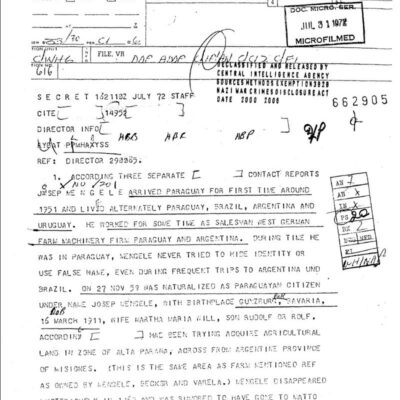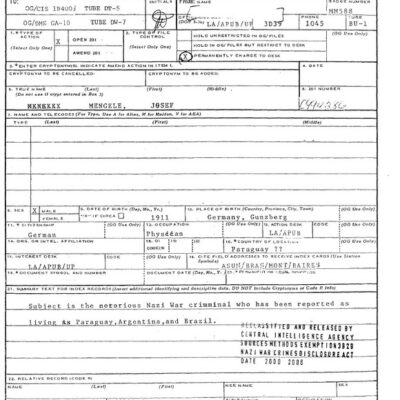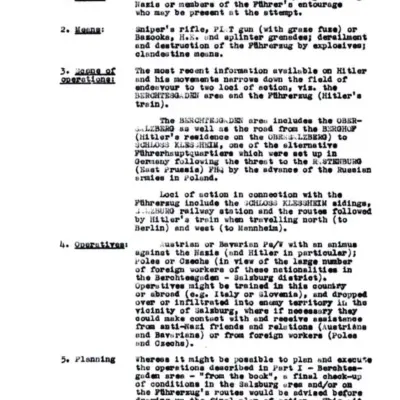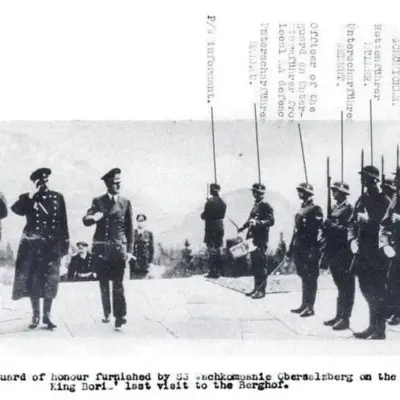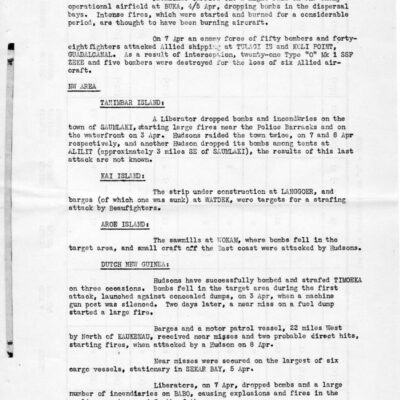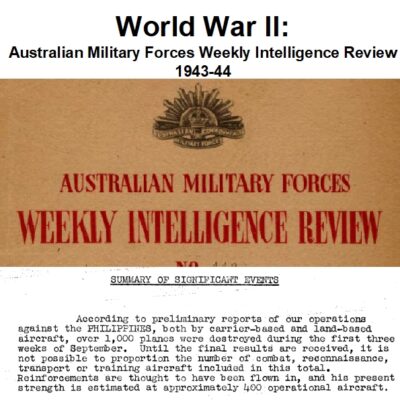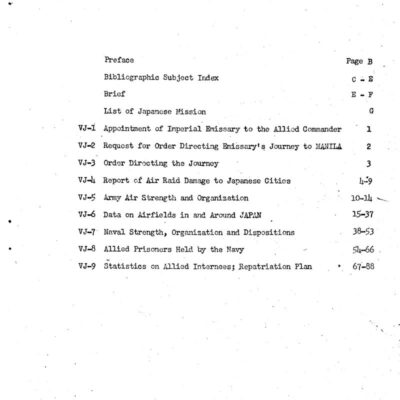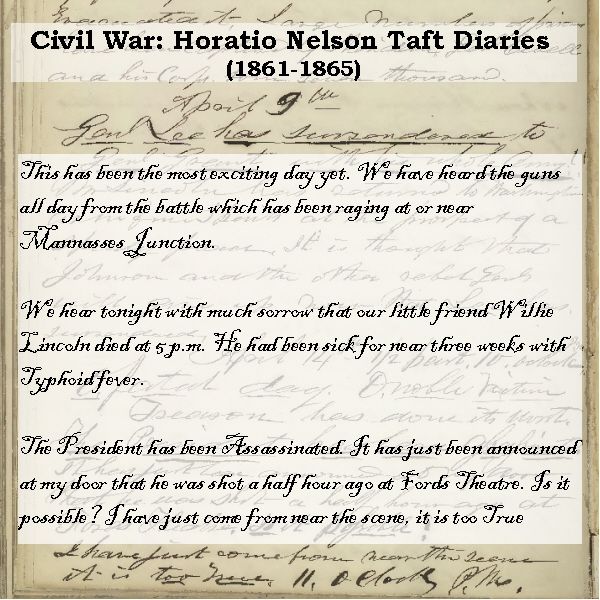
Description
Taft’s Washington: Diaries and Lincoln Friendships, 1861-1865
Timeline of Main Events
- January 1, 1861: Horatio Nelson Taft begins his daily diary entries, documenting life in Washington D.C. during the escalating tensions leading to the Civil War.
- April 6, 1861: Taft records going to the Navy Yard slave market and renting a “slave girl” named Larney for a year of service, noting he also clothed her. This entry provides a glimpse into the prevalent practice of slavery in the nation’s capital at the time.
- July 21-23, 1861: Taft’s diary entries detail the intense excitement and anxiety in Washington D.C. surrounding the First Battle of Bull Run (Manassas). He mentions hearing the guns all day, the movement of troops and artillery, and the prevalence of rumors in the city.
- Early 1860s: Julia Taft Bayne and her brothers, Horatio Nelson Taft Jr. (“Bud”) and Halsey Cook Taft (“Holly”), begin visiting the White House to play with President Lincoln’s sons, Willie and Tad, at the invitation of First Lady Mary Lincoln.
- February 20, 1862: Taft records the death of Willie Lincoln from typhoid fever at 5 p.m. He expresses deep sorrow and notes Willie’s close relationship with the Taft boys, highlighting Willie’s amiable nature and mature judgment. Following Willie’s death, the Taft children cease their visits to the White House.
- April 11, 1862: Taft makes his last regular daily diary entry. Subsequent entries become irregular.
- January 1, 1863: Taft notes the issuance of the Emancipation Proclamation. He also observes that President Lincoln no longer has a large cavalry bodyguard, which Taft attributes to the concerns of Lincoln’s friends for his safety.
- April 14, 1865: Taft records the shocking news of President Abraham Lincoln’s assassination at Ford’s Theatre around 10:30 p.m. He notes his proximity to the scene and confirms the tragic event. His older son, Charles Sabin Taft, was among the attending physicians.
- May 24, 1865: Taft comments on Clara Barton, recognizing her presence at the Grand Review of the Armies. He praises her as the “Angel of the Battlefield” and recounts her courageous service tending to the wounded in battles such as Fredericksburg and during the Wilderness and Petersburg campaigns, noting her apparent disregard for danger and her intelligence.
- May 30, 1865: Taft makes his final diary entry.
- February 1897: Julia Taft Bayne publishes an article in St. Nicholas Magazine recalling her and her brothers’ time spent as playmates of Willie and Tad Lincoln in the White House.
- 1931: Julia Taft Bayne’s book, Tad Lincoln’s Father, is published, offering a more extensive account of her family’s relationship with the Lincoln family and life in Washington during the Civil War.
- April 14, 1888: Horatio Nelson Taft dies in Sag Harbor, New York.
- 2000: The diaries of Horatio Nelson Taft are donated to the Library of Congress by Mrs. Willoughby Davis, a Taft relative, bringing them to public attention for the first time.
Cast of Characters
- Horatio Nelson Taft (1806-1888): A U.S. Patent Office examiner and resident of Washington D.C. He was a cousin of future President William Howard Taft and a family friend of the Lincolns. His diaries from 1861 to 1865 provide a firsthand account of life in Washington during the Civil War, including observations on daily life, war events, and the Lincoln family.
- Julia Taft Bayne: Daughter of Horatio Nelson Taft. She and her brothers were playmates of Willie and Tad Lincoln in the White House. She later wrote articles and a book, Tad Lincoln’s Father, recounting these experiences and offering insights into the Lincoln family’s home life during the war.
- Horatio Nelson Taft Jr. (“Bud”): Younger son of Horatio Nelson Taft and brother of Julia Taft Bayne and Halsey Cook Taft. He was a close playmate of Willie Lincoln and continued to inquire about him during his illness.
- Halsey Cook Taft (“Holly”): Younger son of Horatio Nelson Taft and brother of Julia Taft Bayne and Horatio Nelson Taft Jr. He also played with Willie and Tad Lincoln at the White House.
- Abraham Lincoln (1809-1865): The 16th President of the United States during the Civil War. Taft’s diaries and his children’s interactions provide glimpses into his life and the impact of the war on him and his family. He is tragically assassinated towards the end of the war.
- Mary Todd Lincoln (1818-1882): Wife of President Abraham Lincoln and First Lady. She initiated the connection between the Taft children and her sons, seeking playmates for them in the White House.
- Willie Lincoln (1850-1862): Son of President Abraham and Mary Todd Lincoln. He became close friends and playmates with the Taft children. His death from typhoid fever in February 1862 deeply saddened the Taft family and ended their regular visits to the White House.
- Tad Lincoln (1853-1871): Son of President Abraham and Mary Todd Lincoln and younger brother of Willie. He also played with the Taft children.
- Charles Sabin Taft: Older son of Horatio Nelson Taft. He was a U.S. Army surgeon and was present as one of the attending physicians at Ford’s Theatre on the night President Lincoln was assassinated. His account contributed to his father’s diary entry about the event.
- Mrs. Smith: The owner of the “slave girl” Larney, from whom Horatio Nelson Taft rented her services for a year.
- Larney: A “slave girl” rented by Horatio Nelson Taft for a year of service. Her perspective and experiences are not recorded in the sources, but her mention highlights the practice of slavery in Washington D.C. during this period.
- Clara Barton (1821-1912): A pioneering nurse who later founded the American Red Cross. Taft mentions her as the “Angel of the Battlefield” and recounts her courageous work tending to wounded soldiers in various major battles of the Civil War.
- Dr. Frank D. Milligan: The Director of President Lincoln’s Cottage at the Soldiers’ Home, who describes Horatio Nelson Taft’s diaries as “one of the most extraordinary Civil War wartime diaries written in a northern city.”
- Mrs. Willoughby Davis: A relative of Horatio Nelson Taft who presented his diaries to the Library of Congress in 2000, making them publicly available.
Civil War: Horatio Nelson Taft Diaries (1861-1865)
The Civil War era diary of Horatio Nelson Taft (1806-1888), a U.S. Patent Office examiner, Washington DC resident, a cousin of future President William Howard Taft, and family friends with the Lincolns. The diaries of Horatio Taft provide a vivid record of life in Washington during the most traumatic period of our history as a nation.
Horatio Nelson Taft Diaries
1,240 entries, 413 diary page images, and 174 pages of transcripts. The diaries cover daily life in Washington, Civil War events, and President Lincoln. Taft made daily entries from January 1, 1861, through April 11, 1862, and irregular entries thereafter until May 30, 1865.
Dr. Frank D. Milligan, the Director of President Lincoln’s Cottage at the Soldiers’ Home, describes the diaries as, “One of the most extraordinary Civil War wartime diaries written in a northern city… His entries describe the prevalent fear felt by Washingtonians of invasion by the southern armies that seemed to swarm its Virginia and Maryland hinterland at will.”
The diaries had never been seen outside the Taft family until they came into the procession of the Library of Congress in 2000. They were mentioned in the book Tad Lincoln’s Father written by Taft’s daughter, Julia Taft Bayne.
The diaries are especially significant because of his descriptions of daily life in Washington during the Civil War and Taft’s connection to the Abraham Lincoln family. Taft’s younger son was a playmate of Willie Lincoln. The diaries include descriptions of Lincoln’s assassination, based on the accounts of his friends and Taft’s older son, Charles Sabin Taft, a U.S. Army surgeon, who was one of the attending physicians at Ford’s Theatre the night Lincoln was shot. Content of the diaries include descriptions of the arrival and quartering of regiments, hospitals, and the daily news reports (sometimes early inaccurate accounts) of battles.
Willie and Tad Lincoln by Julia Taft Bayne – St. Nicholas Magazine February 1897
A 6-page article written by Julia Taft Bayne in 1897, appearing in St. Nicholas magazine, about time spent in the Lincoln White House by her and her brothers. Bayne mentions Taft and Lincoln boys roughhousing, a minstrel show put on by Lincoln’s sons, and interactions with President Lincoln.
Tad Lincoln’s Father (1931)
A copy of Taft’s daughter’s book “Tad Lincoln’s Father” (1931) by Julia Taft Bayne. Full title, “Tad Lincoln’s Father, Julia Taft Bayne, The Sister of two of Tad and Willie Lincoln’s Inseparable Playmates, Herself a Constant Visitor at the White House in the Early Sixties, Recreates Charmingly the Home Life of the Martyred President.”
As the young sons of President Abraham Lincoln had no playmates at the White House, the First Lady Mary Lincoln asked Mrs. Taft if she had children who might come to see them. Mrs. Taft asked her daughter Julia to take 14-year-old Horatio Nelson Jr., or Bud, and 11-year-old Halsey Cook Taft, called Holly, with her to the White House to play with the Lincoln boys. During this time, Julia Taft was befriended by Mary and President Lincoln. After Willie Lincoln died of typhoid fever on February 20, 1862, the Taft children stopped visiting the White House.
Source: Manuscript Division at the Library of Congress, Washington DC. Presented in 2000 to the Library of Congress by Mrs. Willoughby Davis of Falls Church, Virginia, a relative of Taft. The diary was in the possession of the Taft family since the author’s death at Sag Harbor, New York, April 14, 1888.
First Page of Diary

First page of diary transcription

Taft Mentions Going to a Slave Market at the Navy Yard and Renting a “Slave Girl” April 6, 1861
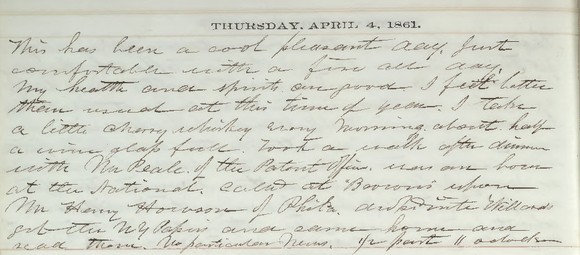
Warm pleasant day. Much excitement again in the City in reference to the movement of troops and the sailing of vessels bound south. It looks as though there was trouble ahead here. The City is again threatened and a “Coup d’Etat” may be attempted in a few days. Went up to the N Yard and paid Mrs Smith $25.00 for a year Service of her Slave girl Larney, have clothed her besides. Was in the “National” and “Willards,” got NY papers & read them. Now ½ past 10.
Accounts of the First Battle of Bull Run/Manassas July 21-23, 1861
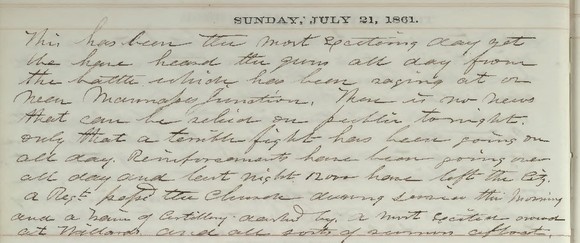
This has been the most exciting day yet. We have heard the guns all day from the battle which has been raging at or near Mannasses Junction. There is no news that can be relied on public tonight, only that a terrible fight has been going on all day. Reinforcements have been going over all day and last night. 12000 have left the City. A Regt passed the church during services this morning and a train of Artillery dashed by. A most excited crowd at Willards and all sorts of rumors afloat.
Death of Willie Lincoln, February 20, 1862
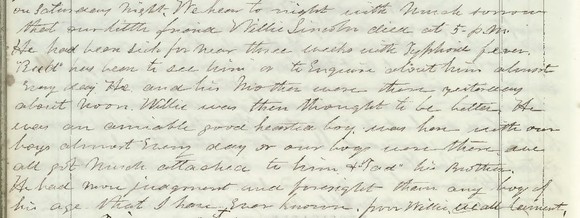
…We hear tonight with much sorrow that our little friend Willie Lincoln died at 5 p.m. He had been sick for near three weeks with Typhoid fever. “Bud” has been to see him or to enquire about him almost every day. He and his Mother were there yesterday about noon. Willie was then thought to be better. He was an amiable good hearted boy, was here with our boys almost every day or our boys were there. We all got much attached to him & “Tad” his Brother. He had more judgment and foresight than any boy of his age that I have ever known, poor Willie we all lament.
Emancipation Proclamation and Lincoln’s Dismissing of Body Guards – January 1, 1863
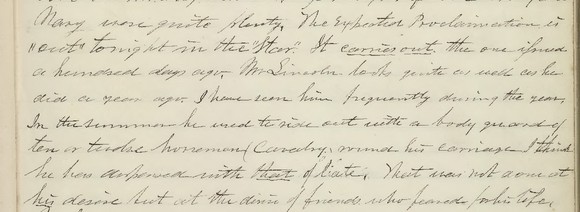
…The expected Proclamation is “out” tonight in the “Star.” It carries out the one issued a hundred days ago. Mr Lincoln looks quite as well as he did a year ago. I have seen him frequently during the year. In the summer he used to ride out with a body guard of ten or twelve horsemen (Cavalry) round his carriage. I think he has dispensed with that of late. That was not done at his desire but at the desire of friends who feared for his life.
News of the Assassination of President Lincoln April 14, 1865
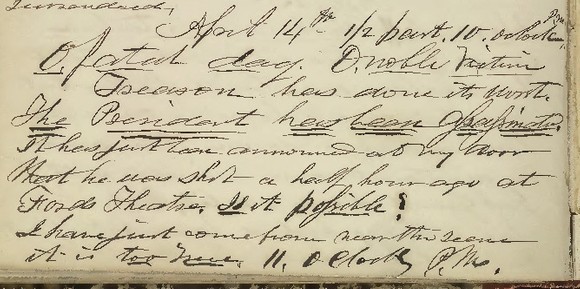
April 14th ½ past 10 o’clock P.M. O, fatal day. O, noble Victim. Treason has done its worst. The President has been Assassinated. It has just been announced at my door that he was shot a half hour ago at Fords Theatre. Is it possible? I have just come from near the scene, it is too True. 11 o’clock P.M.
Taft Comments About Clara Barton May 24, 1865
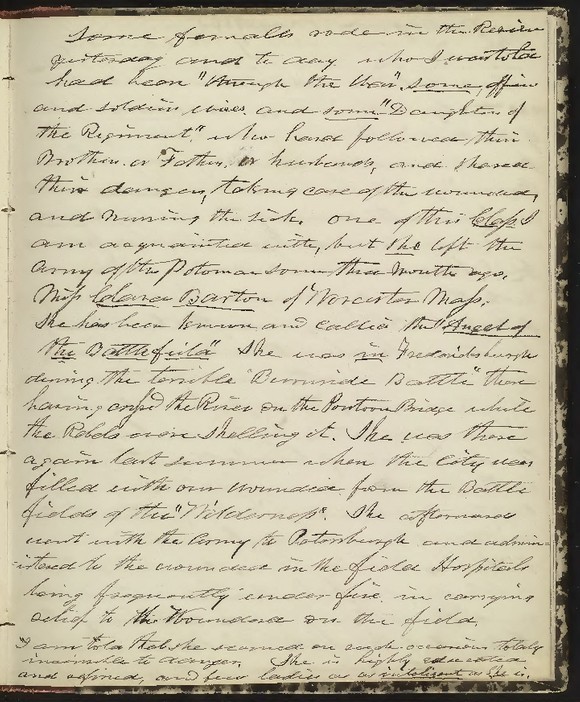
Some females rode in the Review yesterday and today who I was told had been “through the War.” Some officers and soldiers wives and some “Daughters of the Regiment,” who had followed their Brothers or Fathers or husbands, and shared their dangers, taking care of the wounded, and nursing the sick. One of this Class I am acquainted with, but she left the Army of the Potomac some three months ago, Miss Clara Barton of Worcester Mass. She has been known and called the “Angel of the Battlefield.” She was in Fredericksburgh during the terrible “Burnside Battle” there having crossed the River on the Pontoon Bridge while the Rebels were shelling it. She was there again last summer when the City was filled with our wounded from the Battle fields of the “Wilderness.” She afterwards went with the Army to Petersburgh and administered to the wounded in the field Hospitals being frequently under fire in carrying relief to the Wounded on the field. I am told that she seemed on such occasions totaly insensible to danger. She is highly educated and refined, and few ladies ar[e] as inteligent as She is.
